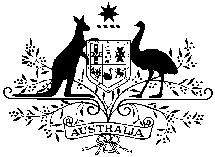 Young women and girls at risk of forced marriage are being encouraged to develop secret safety plans to escape the illegal practice.
Young women and girls at risk of forced marriage are being encouraged to develop secret safety plans to escape the illegal practice.
The Australian Government has uploaded a how-to guide to the Attorney-General’s Department website that outlines actions such as:
- How to get ready to leave home quickly and safely;
- How to make sure you’re not taken overseas to be married;
- How to secretly purchase a cheap mobile phone;
- Using “safe” words that can confirm your identity; and
- Deleting text messages after sending, and removing calls from call logs to stop someone else identifying who has been called.
The plan also encourages a potential victim to save the number for the AFP (131 237) in a mobile phone under a name that won’t arouse suspicion.
There is a form prompting women to provide details including what documentation to take if leaving home quickly (passport, drivers license, Medicare card, marriage/birth certificate), what to do once a victim has escaped, including what to do when being followed and how to keep children safe.
Forced marriage is an insidious and hidden crime. It is illegal and there is no place for it in Australia.
This Government is reaching out to the mostly young women and girls who may feel vulnerable to forced marriage because we want them to find help and stay safe.
We will prosecute anyone found to be coercing, threatening or deceiving someone into marriage.
As part of that commitment, the Coalition Government is introducing new laws to the Parliament today to clarify what constitutes forced marriage, and increase penalties for conduct that causes a person to enter into a forced marriage.
The definition of forced marriage will be amended to be made clearer when it comes to children and consent to marriage.
Changes introduced to Parliament today will amend the definition to include circumstances in which a person does not consent because he or she is incapable of understanding the nature and effect of a marriage ceremony. And that a child under the age of 16 is presumed to have not understood the marriage ceremony and therefore not have consented to the marriage.
As a consequence of these changes, it will be clear that any person who engages in conduct that causes a person who does not understand the marriage ceremony to enter a marriage, such as through arranging or officiating over the marriage of a child, may be committing an offence.
In addition, these changes – if successful – will increase the penalty for engaging in conduct to cause another person to enter into a forced marriage. The penalty for an aggravated forced marriage offence will be increased from a maximum of seven years’ imprisonment to a maximum of nine years’ imprisonment.
The forced marriage offences are aggravated if the victim is under 18; if the offender subjects the victim to cruel, inhuman or degrading treatment; or engages in conduct reckless to the danger of death or serious harm to the victim or another person. We will also increase the maximum penalty for non-aggravated forced marriage offences from the existing four years’ to seven years’ imprisonment.
The criminalisation of forced marriage in Australia in 2013 signalled that forced marriage is never acceptable in our country. However, the criminal law must be supported by community measures to detect and prevent forced marriage.
Forced marriage can be prevented, and with the right tools we can empower young men and women to protect themselves and their friends, and get help when needed.
For further information on the Forced Marriage Safety Plan please visit: www.ag.gov.au/forcedmarriage





